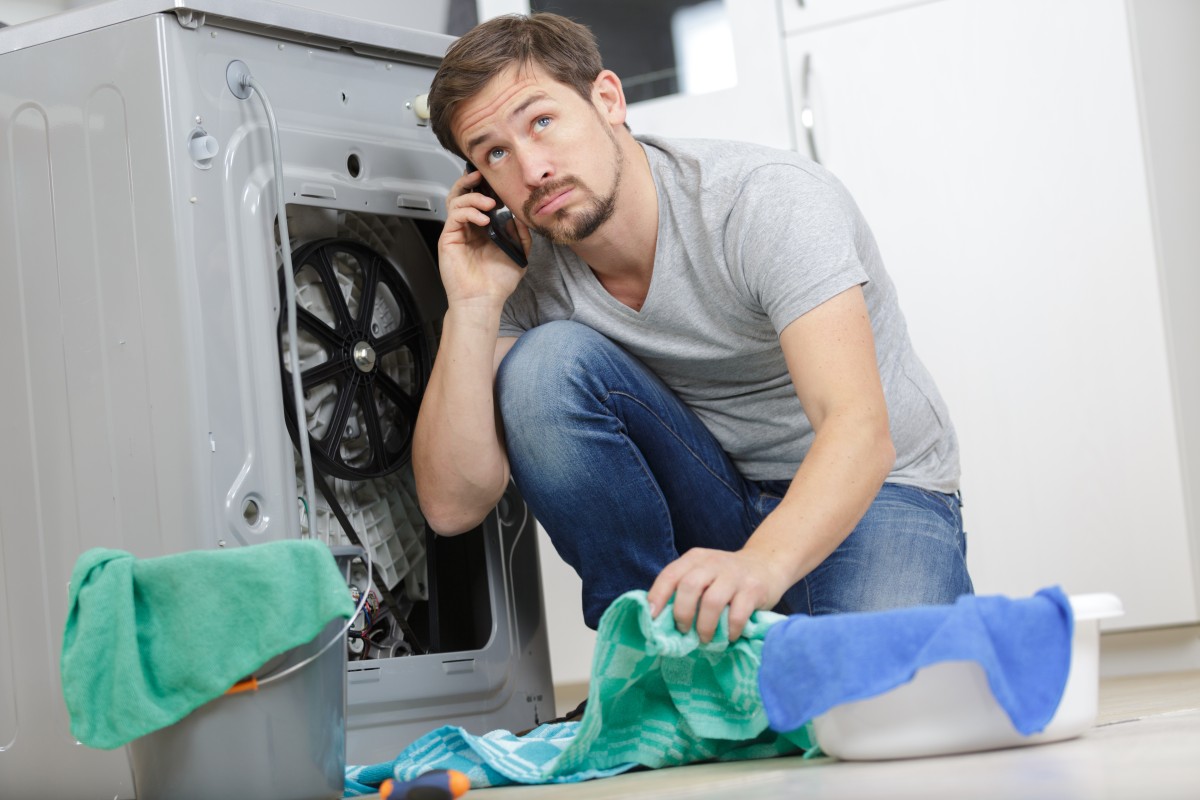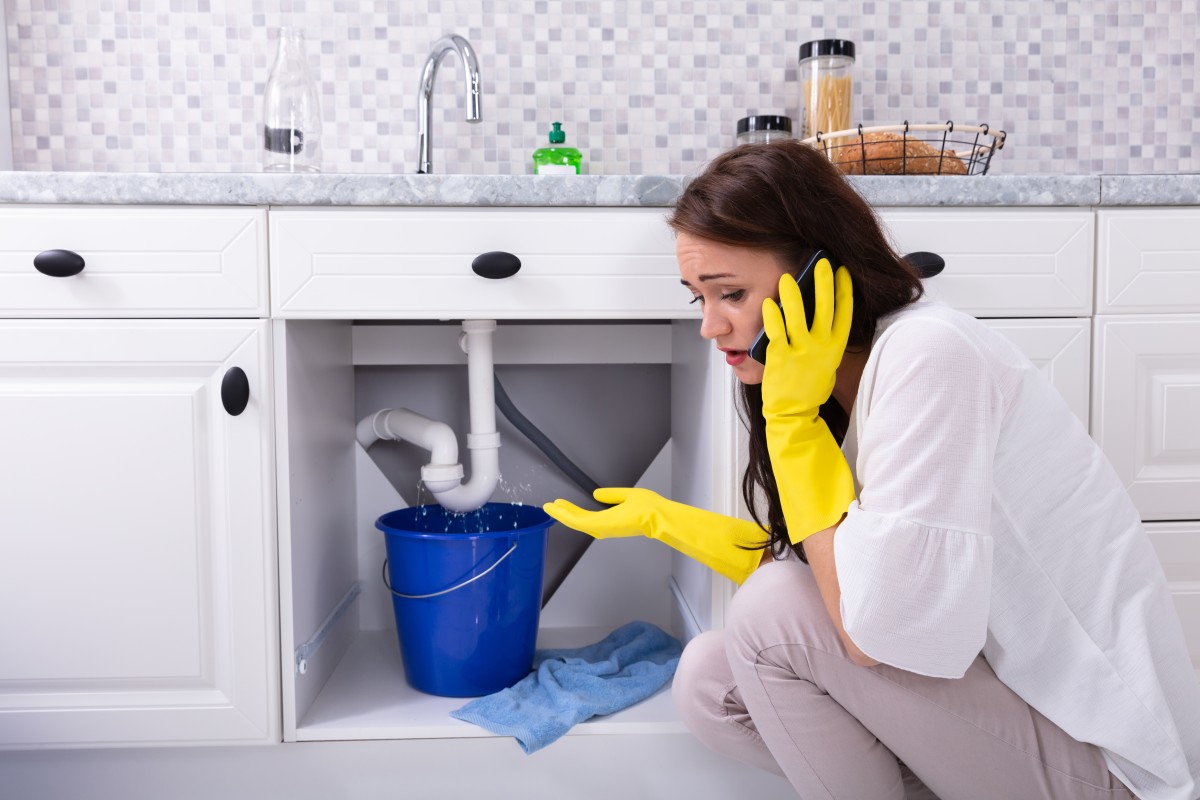In Pittsburgh and throughout western Pennsylvania, there are many beautiful, historic homes built before our modern concept of installing central air. In a house without ducts, often tenants and homeowners stick to less-effective window units, which do little to make a home energy efficient and often don’t provide the relief from Pittsburgh’s hot and humid climate in late summer.
What are some of the options that owners of Pittsburgh’s historic buildings can use to make their homes energy efficient and cool without having to take out walls and spaces for modern ductwork. Let’s talk about the modern ductless wall air conditioner, and whether it’s a good option for you.

Air Conditioning Options for Homes Without Ductwork
Homes built before the 1970s likely do not have ductwork. So, homeowners looking to install AC with homes like these are stuck, right? Well, there are a few air conditioning options for homes without ductwork:
Option #1: Install new ductwork.
Adding expensive and sometimes ugly ductwork to your building may include adding to your attic, cutting through walls and beams or adding cubbies to your home. Then, after that installation, the central AC unit will need to be purchased and installed. On the whole, this may end up being better for energy than wall units.
Option #2: Deal with window units.
Cope through the hot Pittsburgh summer season with cheap and less efficient window units. This way, you’ll have to take them down every winter and put them up every summer. Tenants who don’t own buildings are frequently stuck doing this, even though it is a great deal of hassle and rarely cools the rooms satisfyingly.
Option #3: Buy a ductless air conditioner.
The ductless AC unit is a relatively new invention, which is perfect for small, older homes. An indoor unit hangs on the upper part of an interior wall. That wall’s other side should be the outdoors. An outdoor unit contains a fan and compressor. A refrigerant line connects between the indoor and outdoor units. Typically, those looking at ductless AC units can choose between high-velocity systems and mini-split systems. Split systems tend to give you more control for each “zone” or room.
Split Ductless Vs. Central Air Conditioning
Those choosing between ductless ac or central air often weigh the following factors:
| Factors |
Central Air |
Split Ductless AC |
| Ducts |
It requires duct installation. |
No ducts are required. |
| Noise |
Central air uses a noisier system. |
Ductless tends to be quieter. |
| Energy Efficiency |
There are a wide array of energy efficient options. |
Often, ductless is more energy efficient, but it depends on the unit. |
| Costs |
Cost is cheaper for homes with a duct system already in place. |
Ductless is often cheaper for homes that would need to install new ductwork. |
| Zoning |
Central air tends to affect the whole house. |
Split ductless allows you to control each room. |
| Visuals |
Central air is often built into the home. |
Indoor ductless units can visually interrupt the space. |
Cost to Install Central Air with No Existing Ductwork
Typically, this project is in the thousands. Let’s compare the cost of ductless ac vs central air:
The Cost of New Ductwork
Adding new ductwork frequently costs an average of $20 per linear foot, which can add up to about $3,000 for a 2,500 square-foot home. This cost can go up to as much as $10,000, ignoring the cost of the central air unit itself. The installation of the unit itself often costs more than $3,000. Commercial buildings can cost more than that. Not to mention, with historic homes you can sometimes risk having to cut through valuable beams ore priceless walls. Installing central air in a house without ducts can be quite a costly project.
The Cost of Ductless AC
Ductless AC units typically come as a kit and cost between $1,000 and $8,000, with the installation costing about $1,000 depending on the labor time. Typically, this will be cheaper than the cost of installing central air without ductwork, but it depends on your home. Big homes (more than 2,000 square feet) and homes with some ductwork may be better served with central air, but those hoping for more energy efficiency without carving up their interiors will typically benefit from ductless air.
If you’re still undecided on which solution would be better for your older home, connect with us. We’re the local heating and cooling experts in Pittsburgh and have worked on many different types of local buildings.
In Pittsburgh and throughout western Pennsylvania, there are many beautiful, historic homes built before our modern concept of installing central air. In a house without ducts, often tenants and homeowners stick to less-effective window units, which do little to make a home energy efficient and often don’t provide the relief from Pittsburgh’s hot and humid climate in late summer.
What are some of the options that owners of Pittsburgh’s historic buildings can use to make their homes energy efficient and cool without having to take out walls and spaces for modern ductwork. Let’s talk about the modern ductless wall air conditioner, and whether it’s a good option for you.

Air Conditioning Options for Homes Without Ductwork
Homes built before the 1970s likely do not have ductwork. So, homeowners looking to install AC with homes like these are stuck, right? Well, there are a few air conditioning options for homes without ductwork:
Option #1: Install new ductwork.
Adding expensive and sometimes ugly ductwork to your building may include adding to your attic, cutting through walls and beams or adding cubbies to your home. Then, after that installation, the central AC unit will need to be purchased and installed. On the whole, this may end up being better for energy than wall units.
Option #2: Deal with window units.
Cope through the hot Pittsburgh summer season with cheap and less efficient window units. This way, you’ll have to take them down every winter and put them up every summer. Tenants who don’t own buildings are frequently stuck doing this, even though it is a great deal of hassle and rarely cools the rooms satisfyingly.
Option #3: Buy a ductless air conditioner.
The ductless AC unit is a relatively new invention, which is perfect for small, older homes. An indoor unit hangs on the upper part of an interior wall. That wall’s other side should be the outdoors. An outdoor unit contains a fan and compressor. A refrigerant line connects between the indoor and outdoor units. Typically, those looking at ductless AC units can choose between high-velocity systems and mini-split systems. Split systems tend to give you more control for each “zone” or room.
Split Ductless Vs. Central Air Conditioning
Those choosing between ductless ac or central air often weigh the following factors:
| Factors |
Central Air |
Split Ductless AC |
| Ducts |
It requires duct installation. |
No ducts are required. |
| Noise |
Central air uses a noisier system. |
Ductless tends to be quieter. |
| Energy Efficiency |
There are a wide array of energy efficient options. |
Often, ductless is more energy efficient, but it depends on the unit. |
| Costs |
Cost is cheaper for homes with a duct system already in place. |
Ductless is often cheaper for homes that would need to install new ductwork. |
| Zoning |
Central air tends to affect the whole house. |
Split ductless allows you to control each room. |
| Visuals |
Central air is often built into the home. |
Indoor ductless units can visually interrupt the space. |
Cost to Install Central Air with No Existing Ductwork
Typically, this project is in the thousands. Let’s compare the cost of ductless ac vs central air:
The Cost of New Ductwork
Adding new ductwork frequently costs an average of $20 per linear foot, which can add up to about $3,000 for a 2,500 square-foot home. This cost can go up to as much as $10,000, ignoring the cost of the central air unit itself. The installation of the unit itself often costs more than $3,000. Commercial buildings can cost more than that. Not to mention, with historic homes you can sometimes risk having to cut through valuable beams ore priceless walls. Installing central air in a house without ducts can be quite a costly project.
The Cost of Ductless AC
Ductless AC units typically come as a kit and cost between $1,000 and $8,000, with the installation costing about $1,000 depending on the labor time. Typically, this will be cheaper than the cost of installing central air without ductwork, but it depends on your home. Big homes (more than 2,000 square feet) and homes with some ductwork may be better served with central air, but those hoping for more energy efficiency without carving up their interiors will typically benefit from ductless air.
If you’re still undecided on which solution would be better for your older home, connect with us. We’re the local heating and cooling experts in Pittsburgh and have worked on many different types of local buildings.
The post Air Conditioning Options for Homes Without Ductwork appeared first on Stahl Plumbing, Heating & Air Conditioning.




 How well do you know your home’s water heater? If you know that it heats up water and that’s about it, there are some more important facts to know, as well as tips for how to best take care of the water heater so it has a long, useful service life.
How well do you know your home’s water heater? If you know that it heats up water and that’s about it, there are some more important facts to know, as well as tips for how to best take care of the water heater so it has a long, useful service life..jpg?width=1200&name=AdobeStock_300953681%20(2).jpg)

 Something has gone terribly wrong with your plumbing system and you’re scrambling… it seems like your home is bursting at the seams and you just don’t know what to do. First things first—don’t panic! Panicking is what’s going to make a situation that’s already heading south downright catastrophic. The first thing that you want to do is call an
Something has gone terribly wrong with your plumbing system and you’re scrambling… it seems like your home is bursting at the seams and you just don’t know what to do. First things first—don’t panic! Panicking is what’s going to make a situation that’s already heading south downright catastrophic. The first thing that you want to do is call an 

